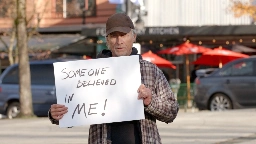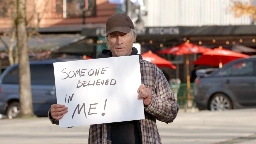A B.C. study gave 50 homeless people $7,500 each. Here's what they spent it on.
A B.C. study gave 50 homeless people $7,500 each. Here's what they spent it on.

bc.ctvnews.ca
A B.C. study gave 50 homeless people $7,500 each. Here's what they spent it on.

Zhao says having data on how people who did get the money actually spent it is something she thinks will help counteract stereotypes, increase empathy and potentially get skeptics and the public on board with the idea of providing cash transfers.
Now that the study is complete, the plan is to replicate it and expand it to other cities in Canada and the U.S.

